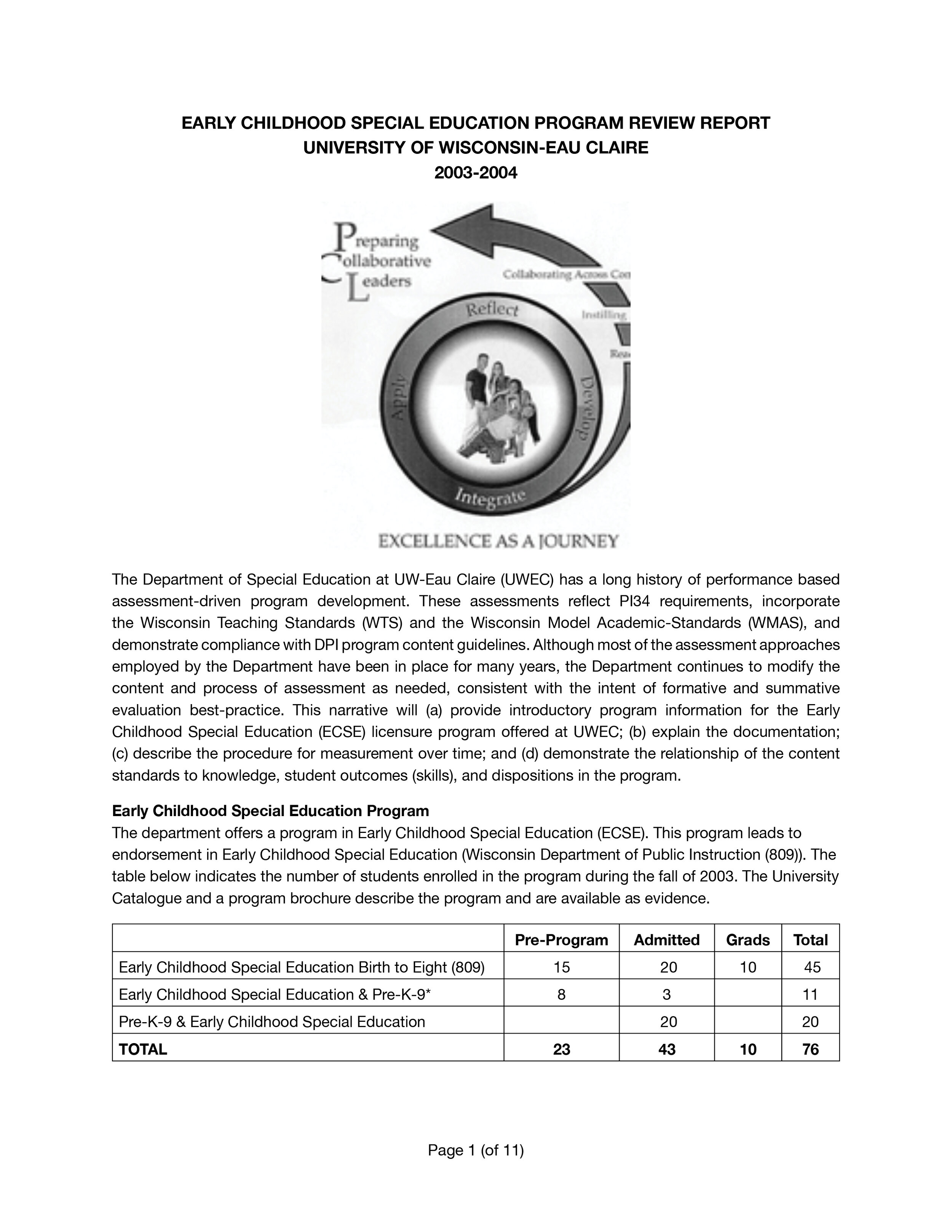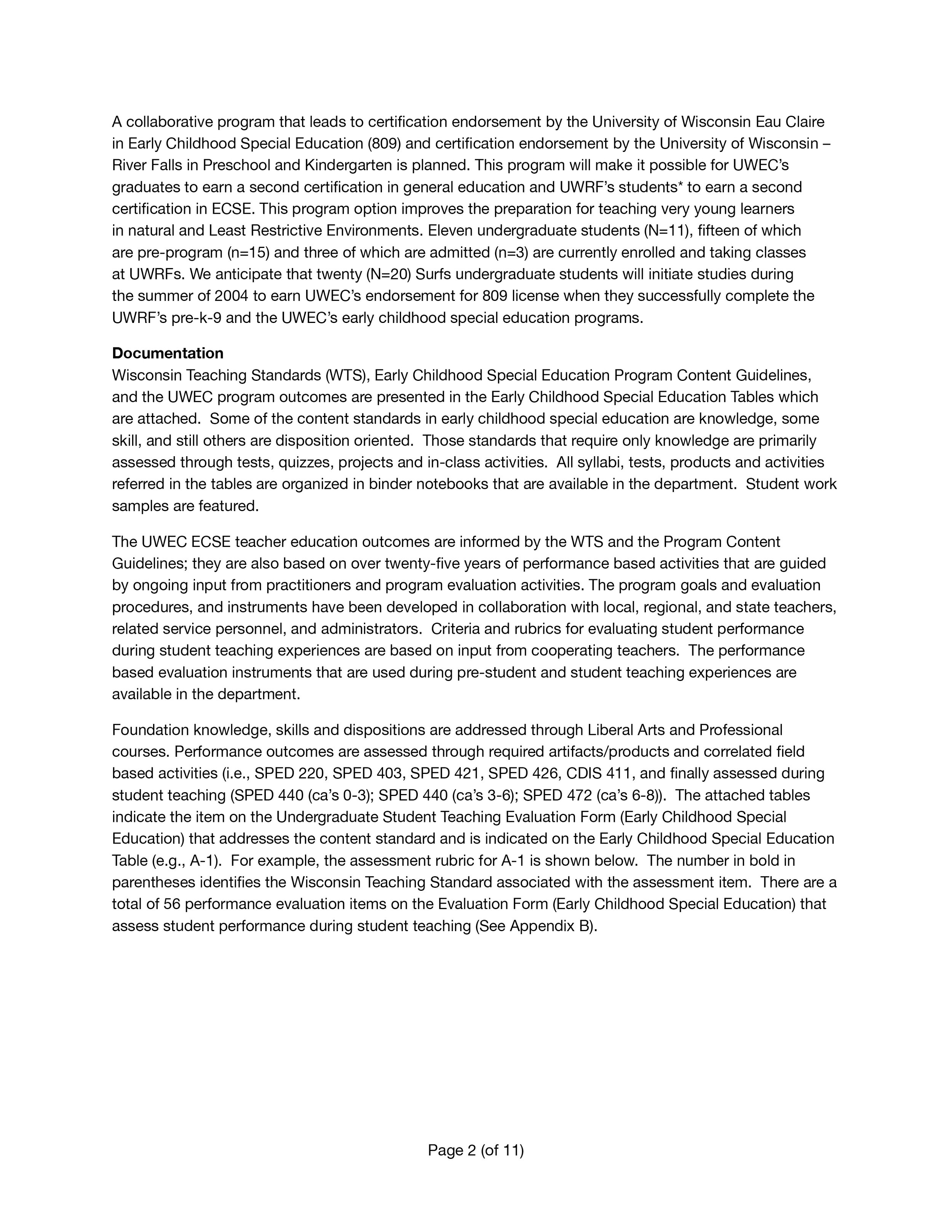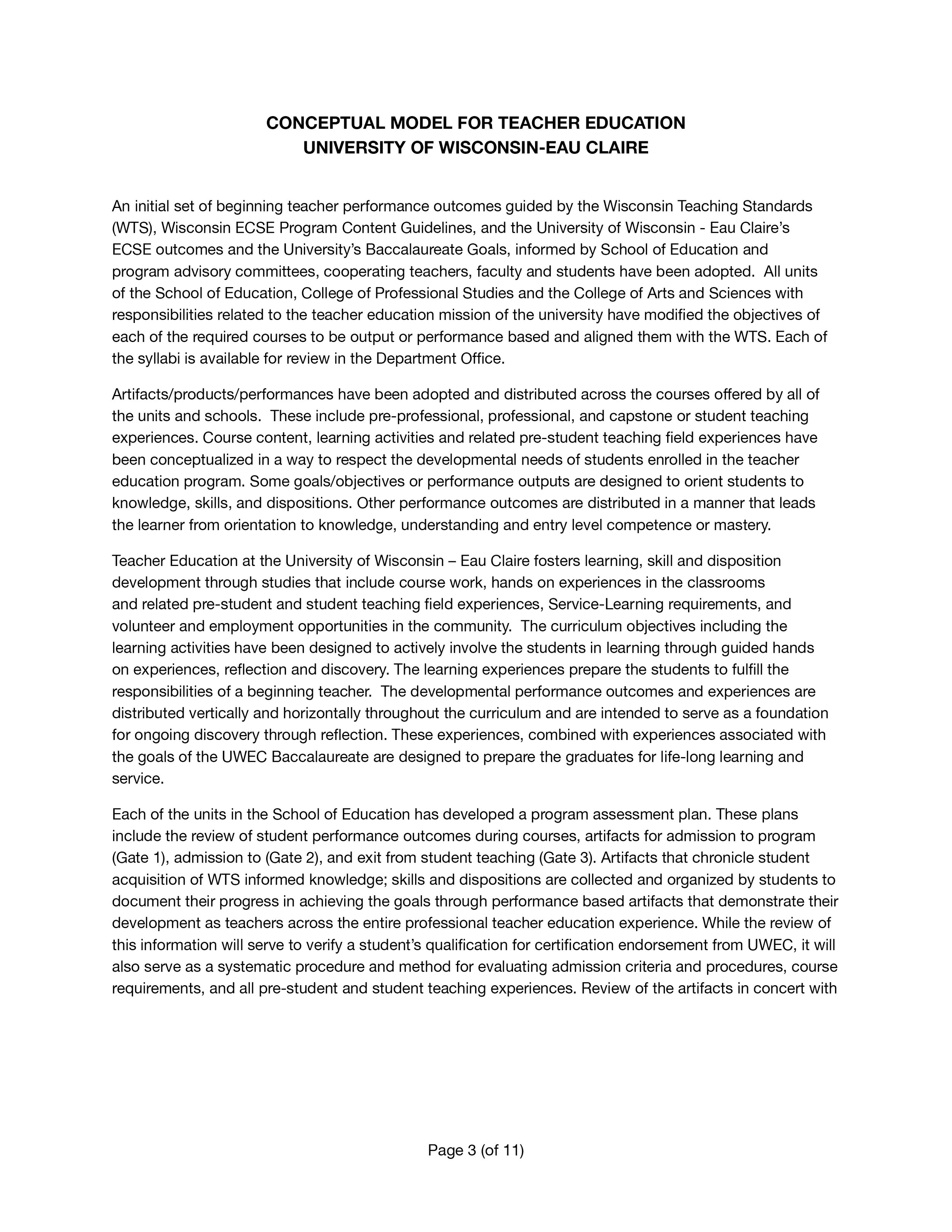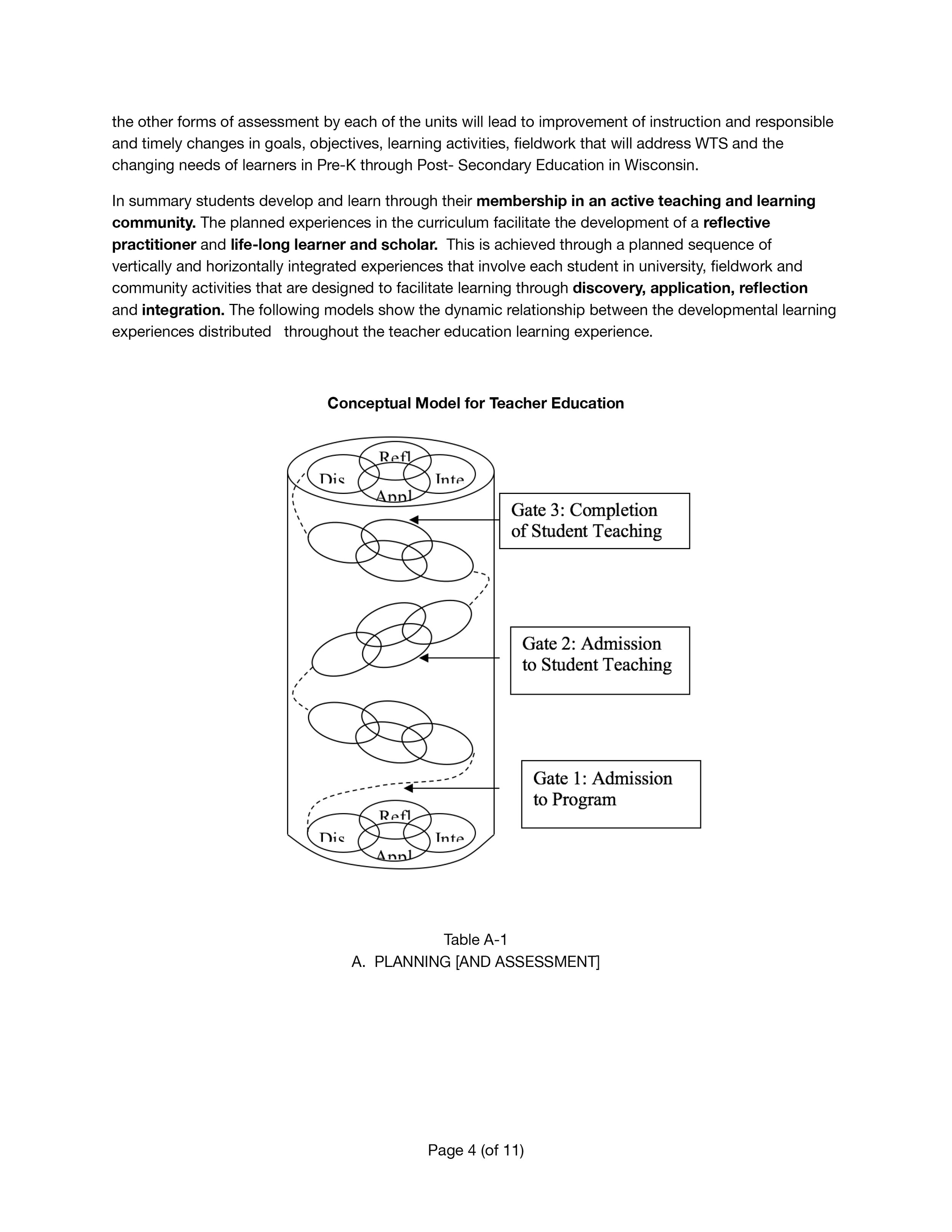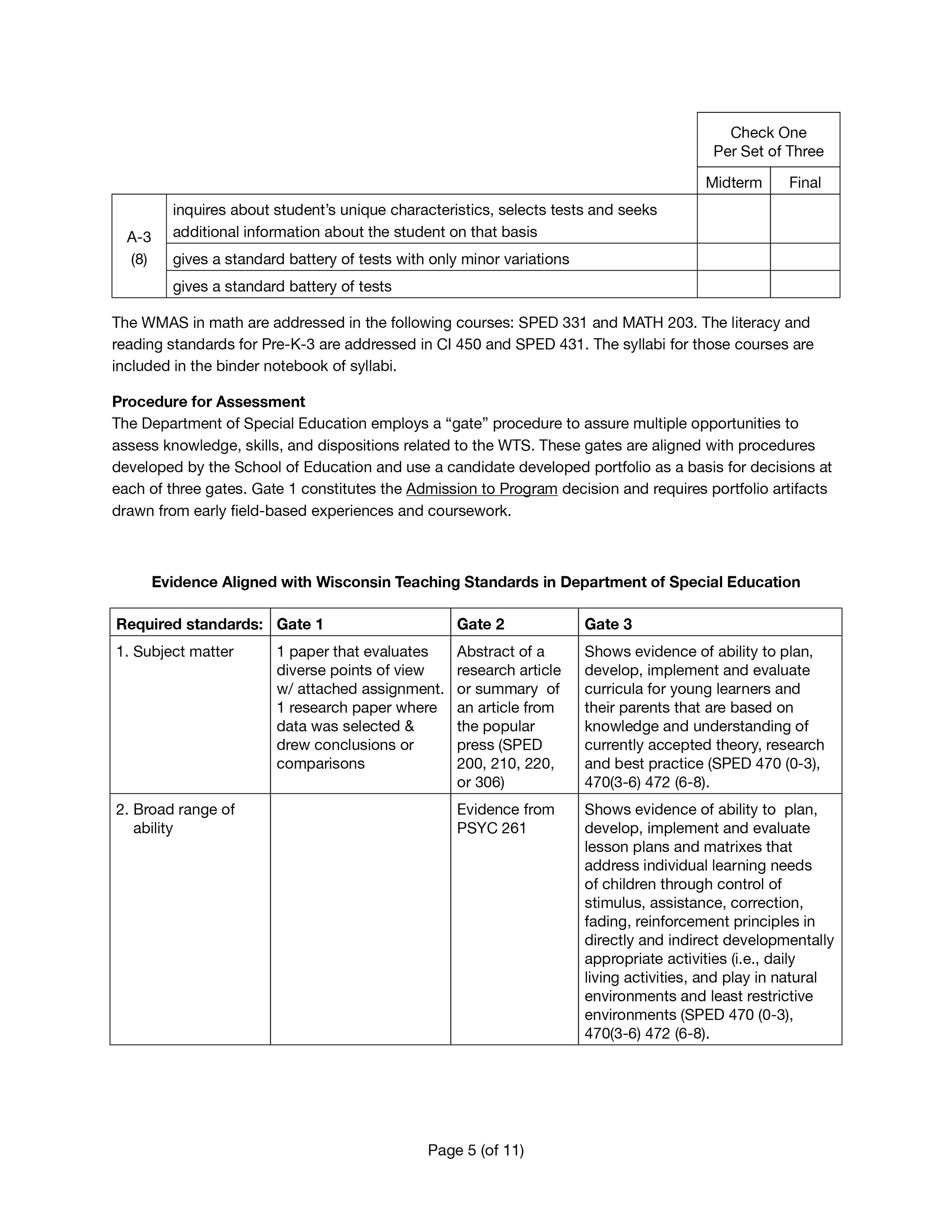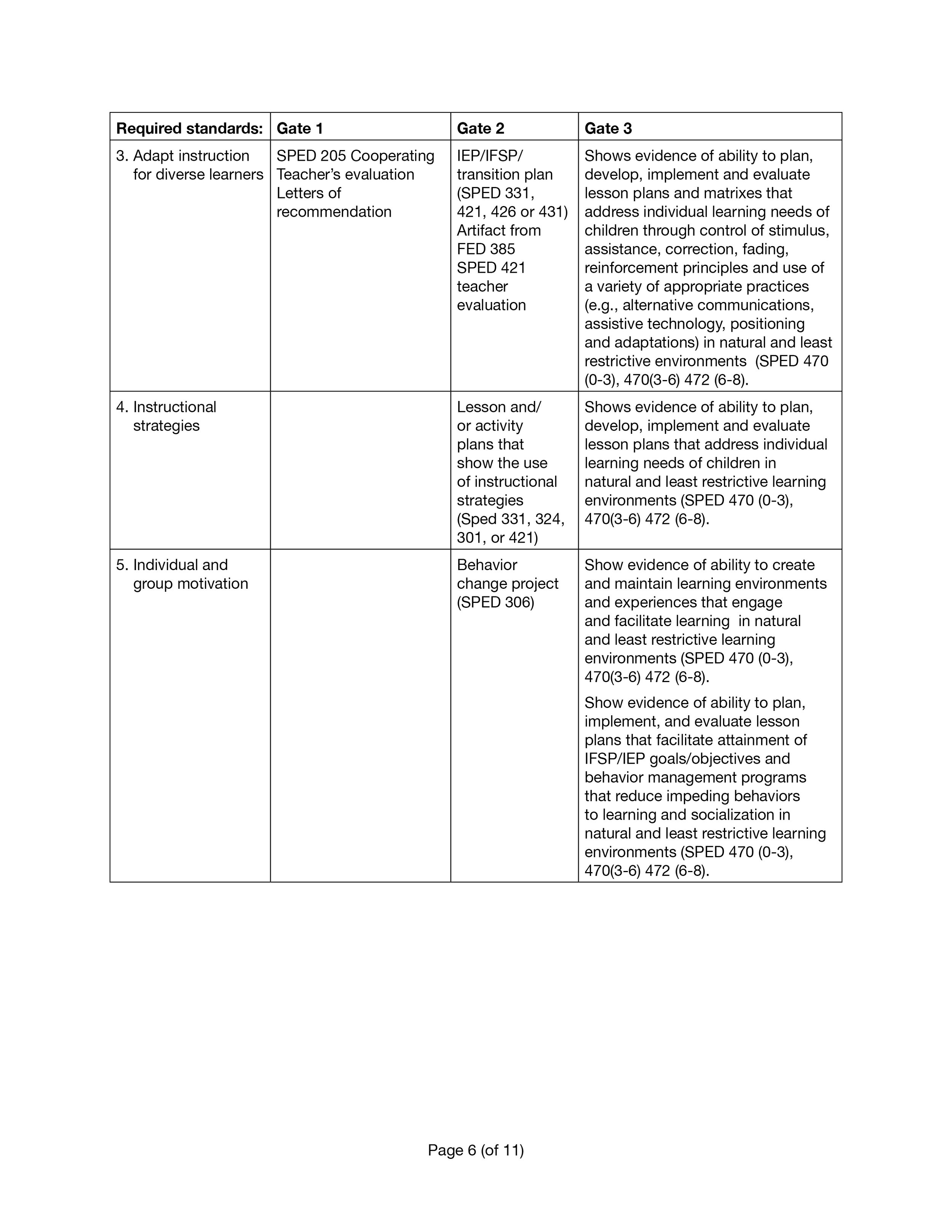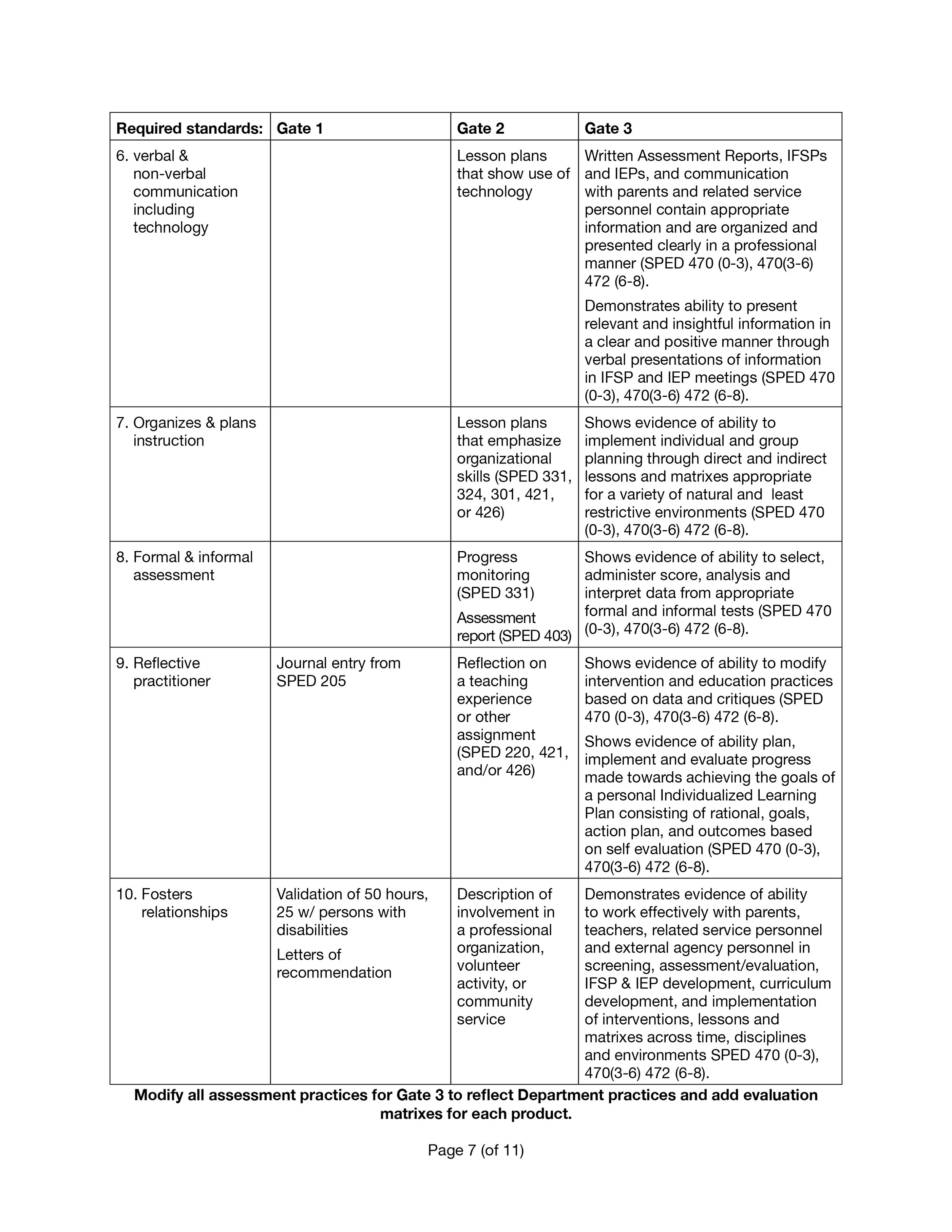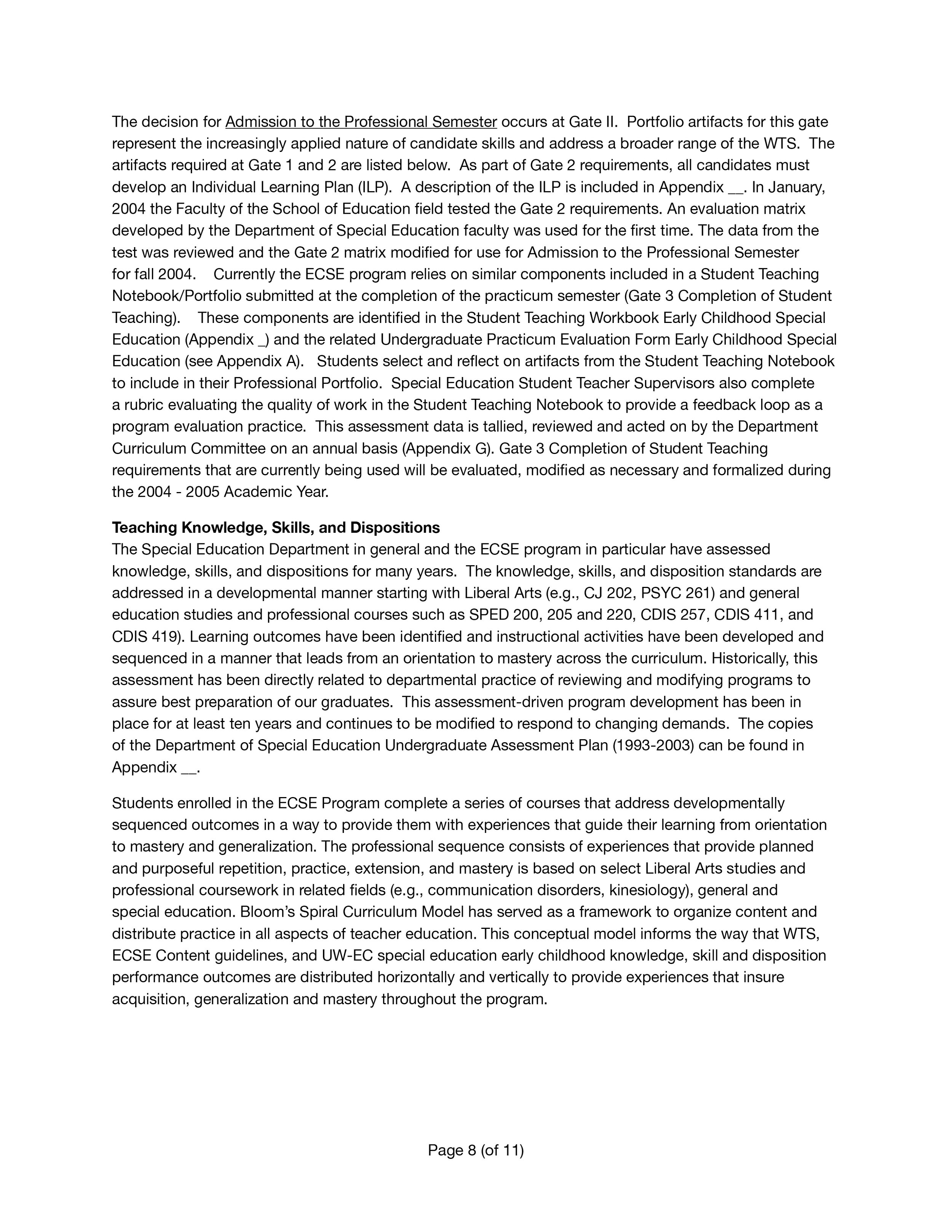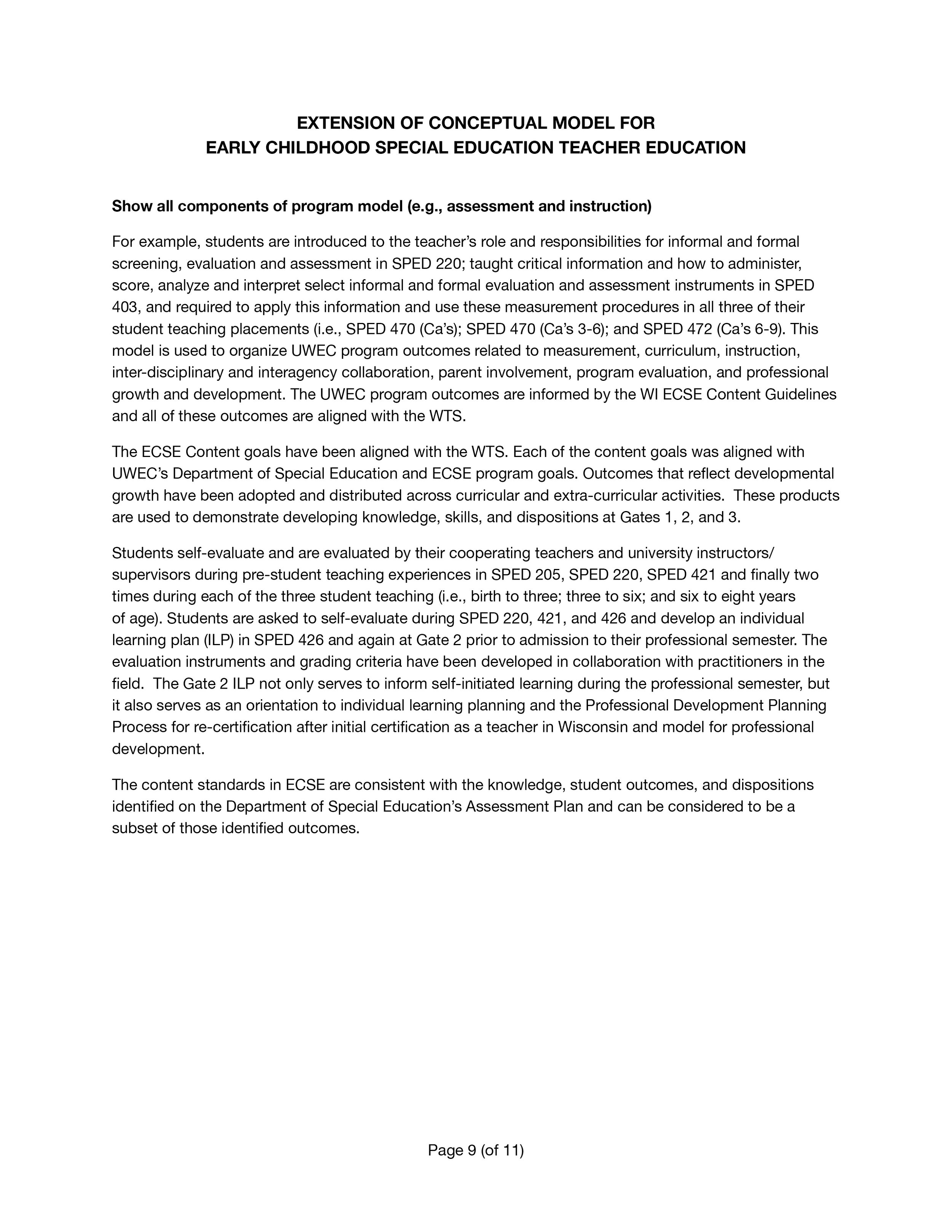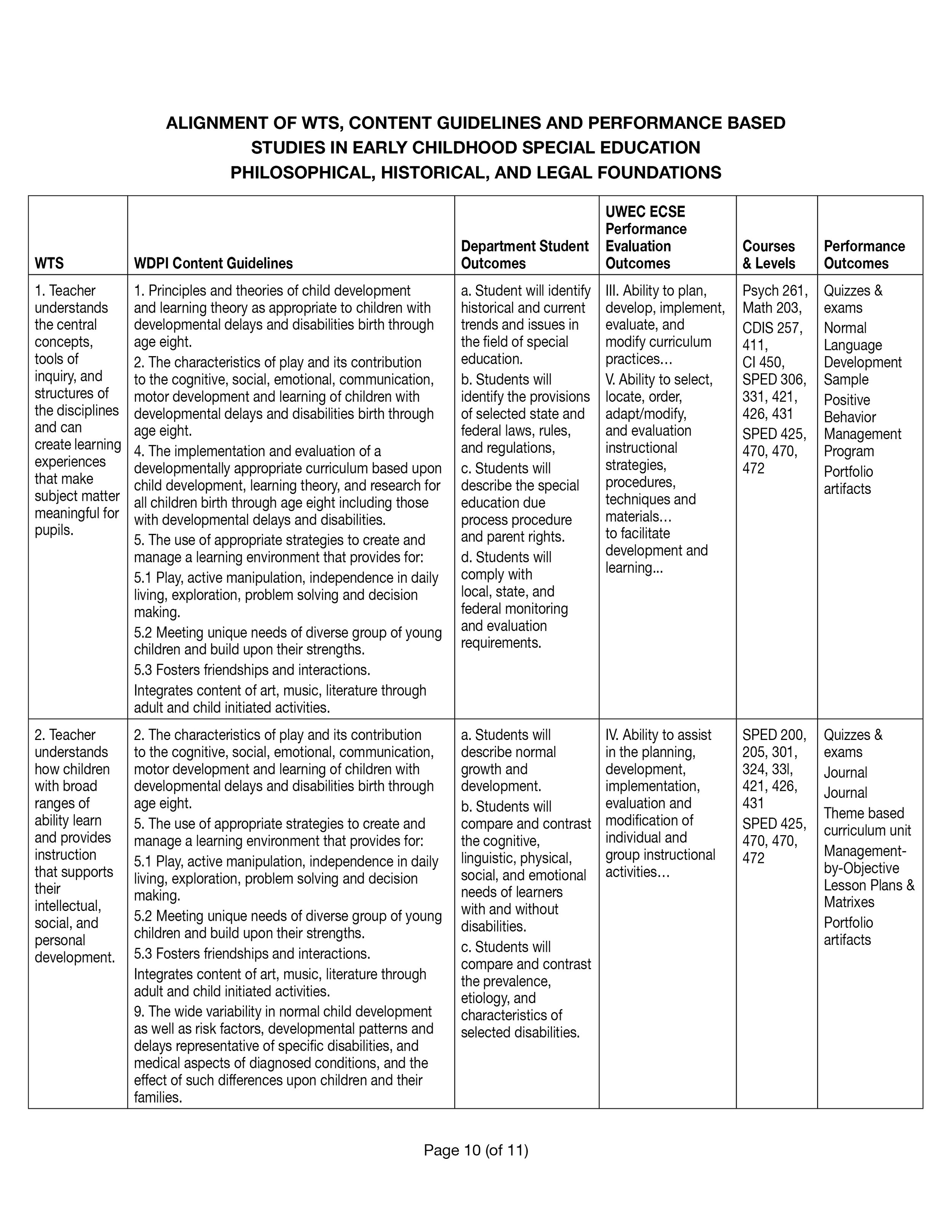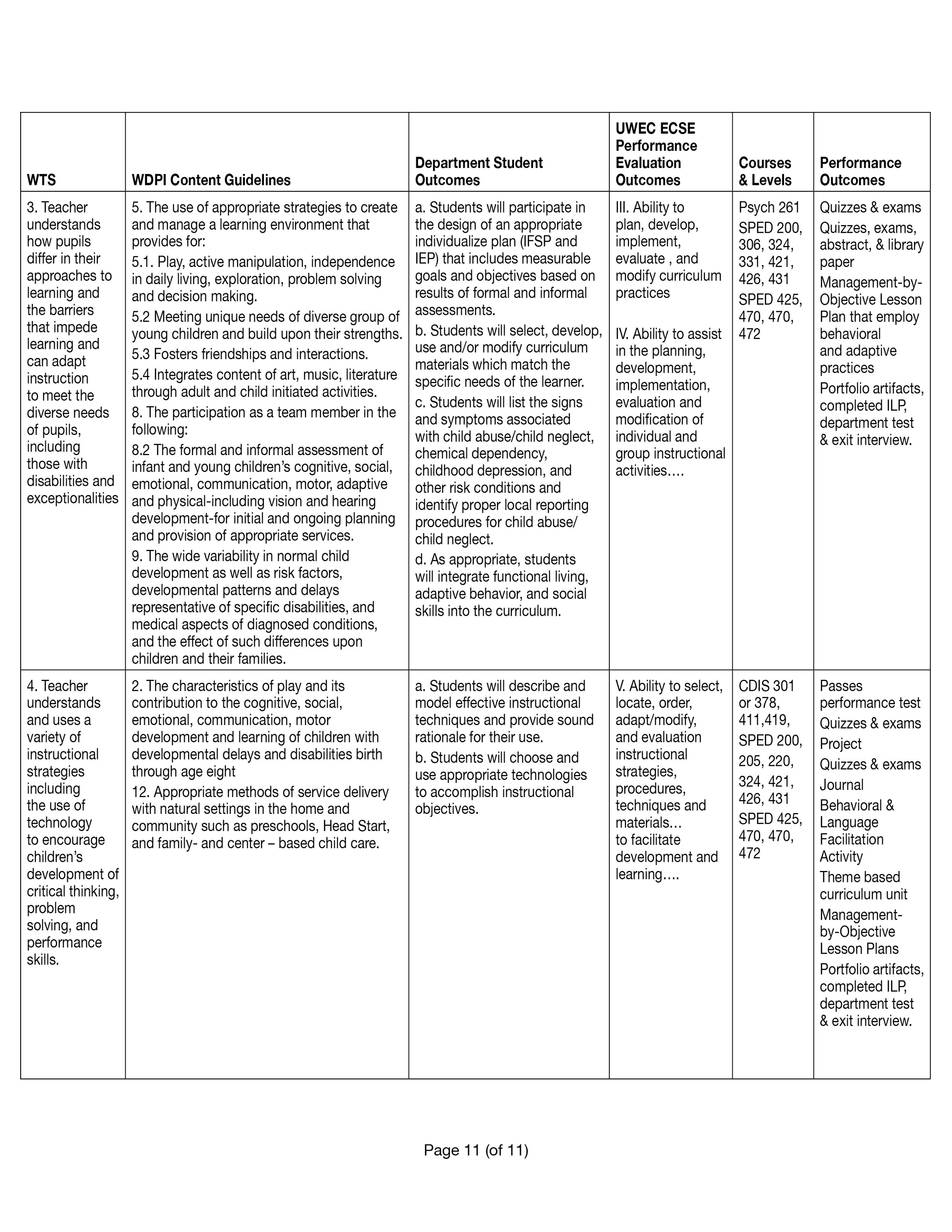Modifications (Improvements, Extensions, and Alignments)
The UW-EC ECSE Teacher training goals the were based on validated competencies for 3 to 6 year old children in 1975 were modified to address the additional needs of children ages birth to 3 and later, children ages 6 to 8 in the1980’s and 1990’s . These changes were necessary to address the the needs of the wider range of children with developmental needs served by EI/ECSE teachers. An alignment was required in 2000 to insure that program training standards conformed to recently adopted Wisconsin Teaching Standards (WTS). These standards were required for training program approval by the State Department of Education. In 2021, the National Association for the Education of Young Children (NAEYC) and the Council for Exceptional Children’s Division on Early Childhood (CEC-DEC) are adopting a list of performance standards that will be used to accredit early childhood teacher education program by the Council for Exceptional Children . These new standards are designed to inform teacher education programs to insuring that EI/ECSE teachers are highly skilled and prepared to work cooperatively with parents, general early education/childcare teacher colleagues, related professionals within and between public and private education, healthcare and social service agencies across the Nation.
The training standards for these teachers have changed with expand services for children, new knowledge about early intervention/education, science based intervention practices, and inclusive delivery services. Each set of standards used in EI/ECSE and a sample program description prepared in the 21st Century for review by the Department of Public Instruction are presented on this page.
Identification of ECSE Certification Competencies 1975
Modifications of ECSE Certification Competencies 1980’s
Allinment with Wisconsin Department of Education Standards 2005
National Teacher Competency Training Standards 2020
Alignment with NAECY & CEC-DEC Performance Standards 2021
Practice-Based Standards for the Preparation of Special Educators have recently been published by the Council for Exceptional Children. This publication is described as an overview of some of the sets of CEC developed standards that meet those of the Council for Accreditation of Educator Preparation (CAEP) implemented in 2016. This review affirms the ECSE teacher competencies that have informed teacher education and certification/licensing practices employed in Wisconsin since the late 70’s. Current emphasis on professional ethics, parent involvement, and culturally sensitive changes in respect for diversity of children served. This is as it should be.

